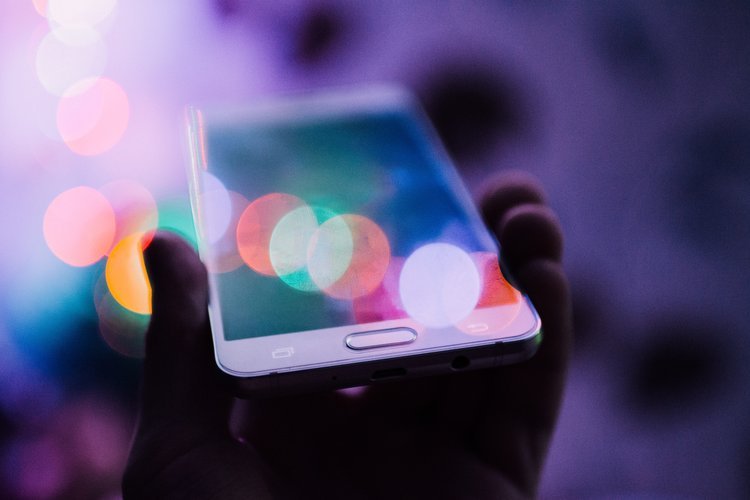2018 Wellbeing Trend Forecast
If I took myself more seriously, I'd call myself a futurist.
But I'm still squarely enjoying the year of #getmoreplay (not like that, you saucy minx). As long as "play" reigns supreme, I will most certainly NOT be taking myself more seriously. All futurist references remain on hold.
It occurs to me, though: what good are my forecasting abilities if not to help you appreciate and partake in emerging wellbeing trends? So I'm here to share my predictions for the top 2018 wellbeing trends.
First, though, I need to establish some street cred. Here are a few ideas I conceived well before they ever hit the market in recent years:
ClassPass
Mushroom-powered functional beverages for the mainstream
Airbnb Experiences
It's also important for me to contextualize my list by saying I've always been focused on wellbeing (it's my public health, urban planning, and sustainability training/sensibilities), which I consider to be more expansive than wellness. If ever we needed collective healing (e.g., communities and the entire planet), now is the time.
With these #humblebrags out of the way, let's get to my top 2018 wellbeing trends for creating a better world.
1. Natural beauty becomes the next organic food movement
Natural beauty brands are loud and proud in today's economy—and for good reason. Until recently, the natural beauty industry was a mixed bag: some products were fantastic while others felt like a big clump of mascara on the eyelash of life. Still others cost more than a week's worth of organic groceries. Yikes.
Not anymore. High-quality products made with safe ingredients that also deliver exceptional results at affordable prices abound in today's beauty market...and will continue to surge.
A big part of the movement is the demand for ingredient transparency, thanks to the important advocacy work of Beautycounter and the Environmental Working Group (and its ingredient database and ranking system, Skin Deep). Large corporations are finally responding (woohoo!); more importantly, though, there continue to be so many fantastic, emerging brands. Here are a few of my favorites: Native (three cheers for aluminum- and paraben-free deodorant that works, especially the Coconut & Vanilla scent), RMS Beauty (their Living Luminizer highlighter is simply the best), Herbivore Botanicals (ooohhh, I love the Coconut Soak), and Pacifica (try their Persian Rose roll-on scent).
Back in 2011, I helped launch the organic/natural product industry's first-ever rewards program for beauty, baby, personal care, household cleaning, and food products. The ambitious program closed after a valiant run, which seemed largely a function of timing (too early). Today, though, with the expansion of stores like CAP Beauty, Follain, and Sephora, to drive consumer preference, such a program might be a hit with the growing demand for better-for-you (and the planet) personal care products.
2. Breathwork takes its place alongside meditation
It starts with your breath. This is what I used to tell anxious college students looking for a quick fix to quell their minds before a big exam. Sure, some of them chose to pop black market Xanax instead, but many came to appreciate the free, accessible, and anonymous (college kids are pretty self-conscious) boost that a few minutes of simple breathing exercises could accomplish. Fast forward three years and we're seeing the revival of breathwork in all kinds of corporate, health care, and educational settings. Let's all exhale a big sigh of relief.
To clarify, mindfulness and meditation aren't going anywhere (it's a $1.1B industry). But neither are stress, anxiousness, and ALL PRODUCTIVITY ALL THE TIME messages. (Can you tell I'm over our cultural obsession with productivity?) I'll gladly welcome a breathwork boom. For starters, we all already do it anyway, so let's just be more intentional and strategic, no? Plus, there's no need to involve your smartphone. And you can realize benefits immediately. #genius
Whether your goal is to mitigate stress, get energized, or establish better focus, there's a breathing exercise for that. Here's one to try, as part of the Wim Hof Method (he's the "Iceman" who olds insane records of superhuman achievement): take 40 deep inhales and exhales, hold your breath, then take a long deep breath. During this time, you'll set off a cascade of hormonal interactions that decrease inflammation and boost immunity. Boom.
3. Longevity is the new anti-aging
As I approach 40, I'm gobsmacked by the deluge of anti-aging promises across most product categories. I usually have two reactions: 1) Don't be so sensitive, Meghan; and 2) Duh, aging is natural...and I plan to do it well.
In 2018, we're seeing a refreshing reframe: longevity.
Longevity is certainly not a new concept. In fact, back in 2006, I worked for Blue Zones, connecting people with lessons learned from the regions of the world where people enjoy healthy longevity. But longevity is a much more positive term that also promotes intellectual curiosity (which, along with gratitude, is the most important personality trait associated with wellbeing).
When we approach living longer, better in this manner, we're less likely to buy products that cause personal harm...and our social psyche heals, too (not just for the middle-aged). We're also now seeing a wave of longevity-promoting products making a splash in the market. One exciting category is nootropics, which are substances that improve executive function, memory, creativity, and motivation. Other areas of commercialization include continued focus on lengthening telomeres and creating new mitochondria, which can strengthen our brains and bodies.
I'm eager to see where the wellbeing industry goes when we cast aside anti-aging in favor of vibrant aging.
4. Big technology is the next big tobacco
You're probably reading this on your smartphone. Perhaps just as you're pondering how to resist your tech addiction or, at the very least, reduce your screen time in 2018. Good news: you're not alone.
There's a glut of research about social media creating a social disaster, replete with loneliness, stress, and depression. Even the founders of some of our most revered social media platforms are hitting the pause button (see Facebook's own Sean Parker). These are the same people who've insidiously plotted how to consume more and more of your attention and time.
There's a certain irony that digital platforms designed to bring us all closer together could very well be tearing us apart. Human interactions are qualitatively shifting, and not for the better. But all is not lost. Addiction is often reversible through cognitive therapy. And because our brains are designed for in-person connection, we're seeing a growing movement of more and more people seeking in-person experiences and spaces (ModernWell and The Coven here in Minneapolis and WeWork, which is popping up seemingly everywhere). Also, as we begin to crave a more intentional relationship with technology, the industry is responding with mindful offerings of its own (check out Moment and the Forest App).
5. Femtech, uhhh, engorges the market
As a kid-free woman of a certain age, I've grown tired of the prenatal obsession among fertility companies. Yes, yes—I get the importance of prenatal care. But tracking my fertility is important for a host of other reasons that have nothing to do with trying to birth a fetus. During the last year, it seems I'm not alone. Femtech has emerged as a $1.1B category dedicated to helping women understand and empower their wellbeing-related decision making. For example, several months ago, I praised MyFLO (I still love it). MyFLO provides lifestyle adjustment suggestions based on symptoms that arise during cycle tracking...because symptoms are not a required part of having a period (i.e., symptoms indicate opportunities to enhance your health). Importantly, there are several apps (like Daysy and Kindara) for those who wish to get pregnant. And others (Shell by BellaBeat and Naya) for those who already are pregnant.
But as more of us care to explore how our sexual health and fertility inform our overall wellbeing, we can make better informed decisions based on our unique biology...all thanks to the rise of Femtech.
As I look ahead to 2018—a time when wellbeing is an increasing priority across the world, not just for the aspirational among us—I like this burgeoning cultural shift focused on reclaiming our collective consciousness, our responsibility to one another, and our collective wellbeing.









